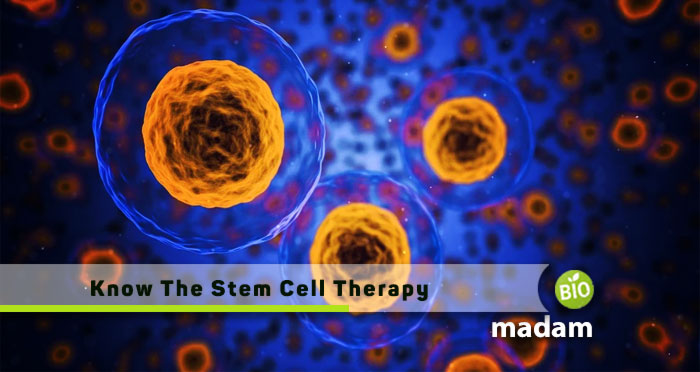Recently updated on January 31st, 2024 at 07:07 am
Stem cell therapy is a hot topic right now. Many people are talking about it, and many people are wondering if it is the right treatment for them. In this blog post, we will discuss some of the most important things that you need to know about stem cell therapy. We will cover what stem cell therapy is, how it works, and who can benefit from it. We will also talk about the potential risks and side effects of stem cell therapy, so that you can make an informed decision about whether or not this treatment is right for you.
What is Stem Cell Therapy?
Stem cell therapy is a treatment that uses stem cells to repair or replace damaged tissue. Stem cells are special cells that have the ability to develop into any other type of cell in the body. It is a natural building block of our body responsible for generation of new tissue as stated by cellaxys experts. This means that they can be used to repair damage caused by disease, injury, or ageing.
There are two main types of stem cell therapy: autologous and allogeneic. Autologous stem cell therapy uses your own stem cells, while allogeneic stem cell therapy uses donor cells.
The most common type of stem cell therapy is bone marrow transplantation. This procedure involves taking stem cells from the bone marrow, which is the soft tissue inside your bones, and transplanting them into another person.
Bone marrow transplants are used to treat a variety of diseases, including leukemia, lymphoma, and multiple sclerosis. They can also be used to treat people who have had their bone marrow damaged by chemotherapy or radiation therapy.
Other types of stem cell therapy are being developed, and many are currently being tested in clinical trials. These include embryonic stem cell therapy, which uses stem cells from embryos, and induced pluripotent stem cell therapy, which uses adult cells that have been genetically engineered to act like embryonic stem cells.
How does Stem Cell Therapy Work?

Stem cell therapy works by replacing damaged or missing cells with healthy ones. In some cases, stem cells can be used to stimulate the body to produce more of its own cells.
For example, stem cell therapy is being studied as a treatment for heart disease. When a person has a heart attack, the heart muscle is damaged and doesn’t work as well as it should. In some cases, stem cells can be injected into the heart to help it repair itself.
Who can Benefit from Stem Cell Therapy?
Stem cell therapy is still in the early stages of development, and there is a lot of research still being done to determine who can benefit from it. However, there are some people who are more likely to benefit from stem cell therapy than others. These include people with certain types of cancer, blood disorders, and genetic diseases. People who suffer from cancer or blood disorders often have a shortage of healthy cells, and stem cell therapy can help to replenish these cells.
People with genetic diseases may also be able to benefit from stem cell therapy. Genetic diseases are caused by mutations in genes, and these mutations can often be corrected by using healthy stem cells. For example, stem cell therapy is being studied as a treatment for sickle cell anaemia, which is a blood disorder that is caused by a mutation in the hemoglobin gene. Also, stem cell therapy is being studied as a treatment for Huntington’s disease, which is a neurological disorder that is caused by a mutation in the Huntingtin gene.
What are the Potential Risks and Side Effects of Stem Cell Therapy?
As with any medical treatment, there are potential risks and side effects associated with stem cell therapy. These include infection, bleeding, and allergic reactions.

How much does Stem Cell Therapy Cost?
The cost of stem cell therapy can vary depending on the type of treatment you receive. Bone marrow transplants, for example, can cost anywhere from $20,000 to $30,000.
Is Stem Cell Therapy Right for me?
The decision of whether or not to undergo stem cell therapy is a personal one. You should discuss the risks and benefits of this treatment with your doctor to see if it is right for you.
If you are considering stem cell therapy, it is important to do your research and ask lots of questions. This will help you make an informed decision about whether or not this treatment is right for you.
Overall, stem cell therapy is a promising treatment with a lot of potential. However, it is still in the early stages of development and more research is needed to determine its safety and effectiveness. If you are considering stem cell therapy, be sure to speak with your doctor about the risks and benefits. This will help you make an informed decision about whether or not this treatment is right for you.

Hi, they call me Jenna, and I am also known for achieving a gold medal during my Ph.D. in science life. I always had a dream to educate people through my utmost writing hobby. So, I chose this blogging path, and Biomadam gave me this opportunity to present for them. I now stand to entertain you. Continue reading my articles & discuss if you’ve any confusion through the comment section below.

